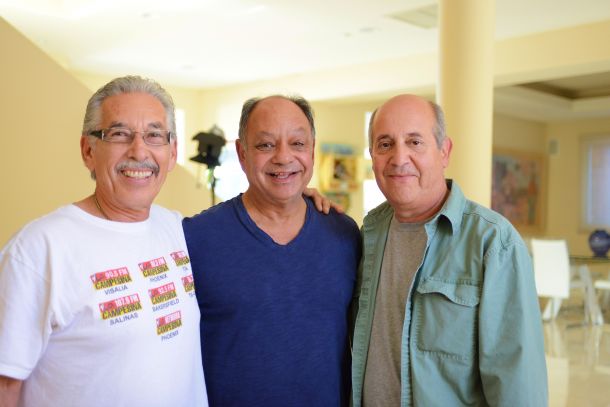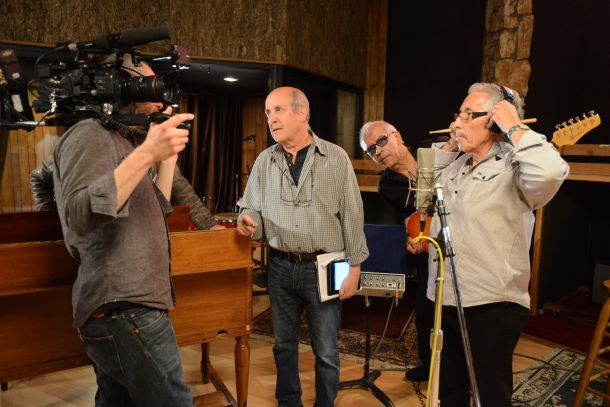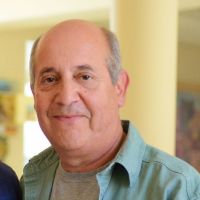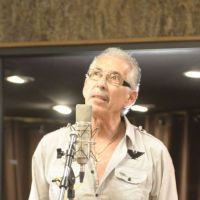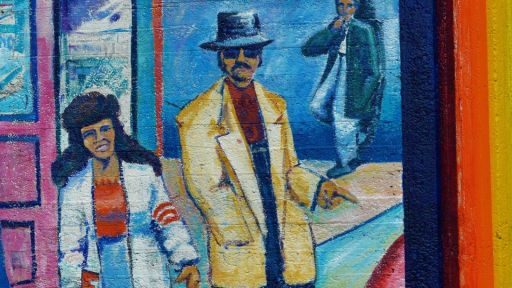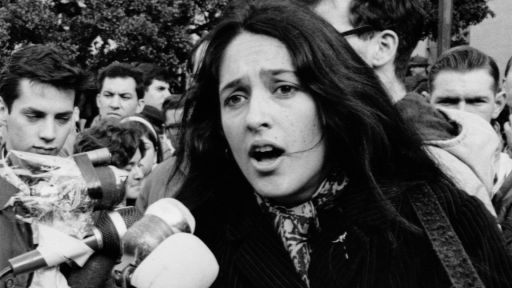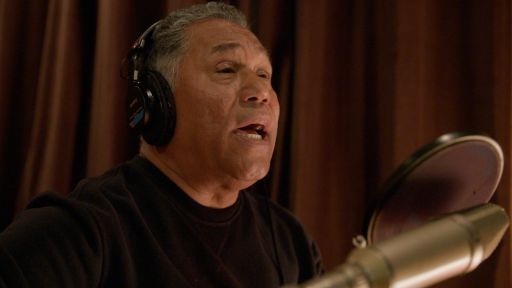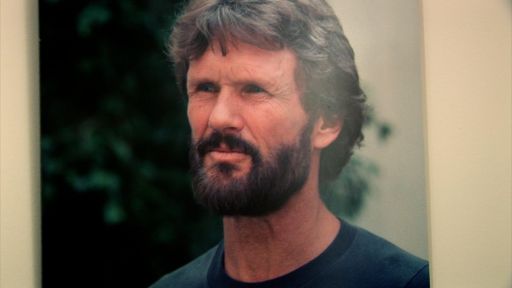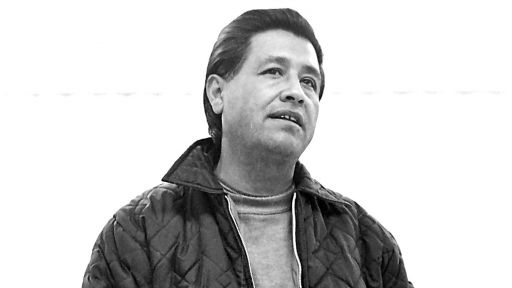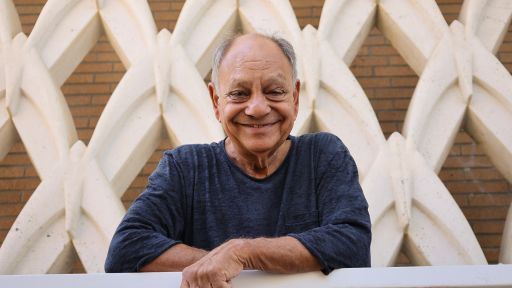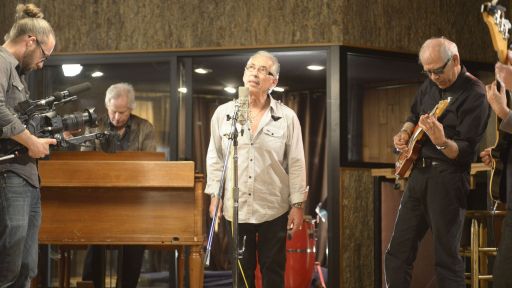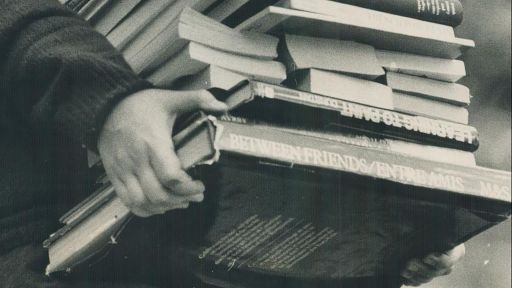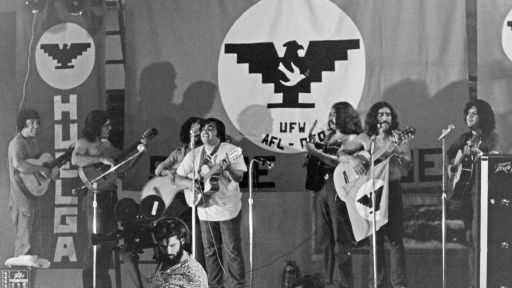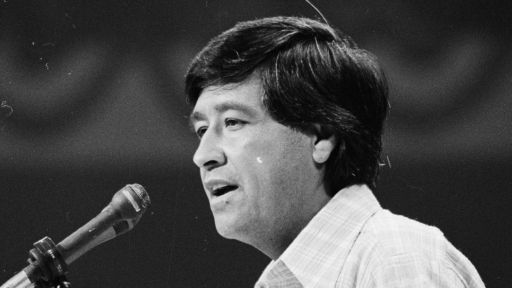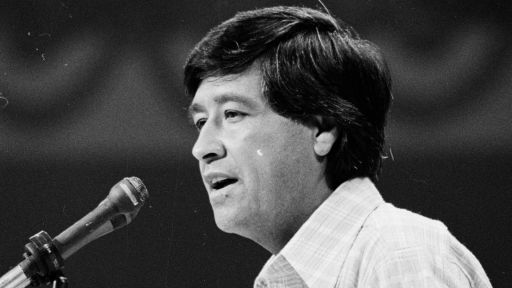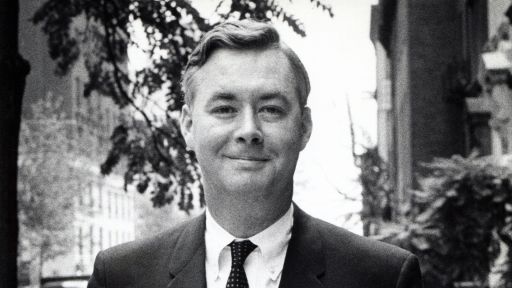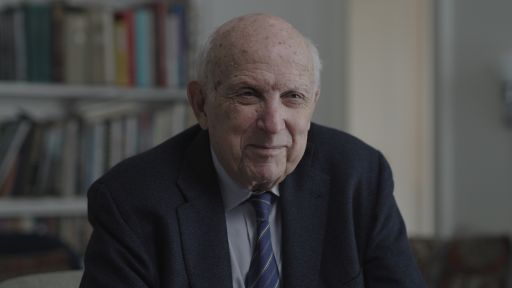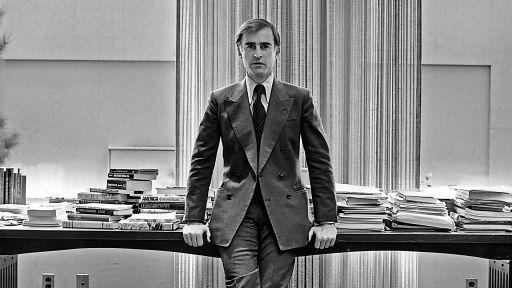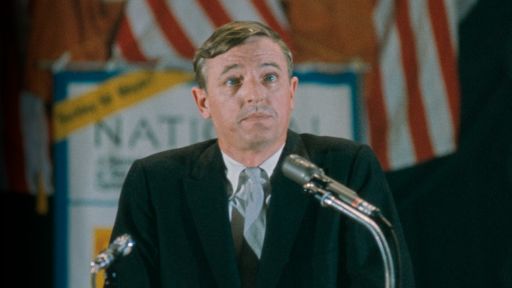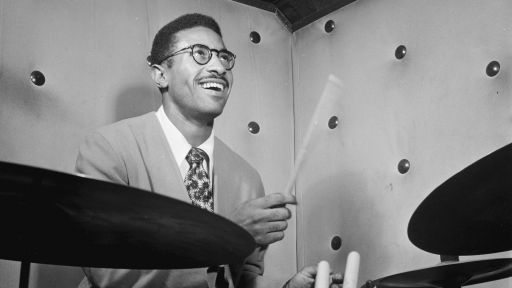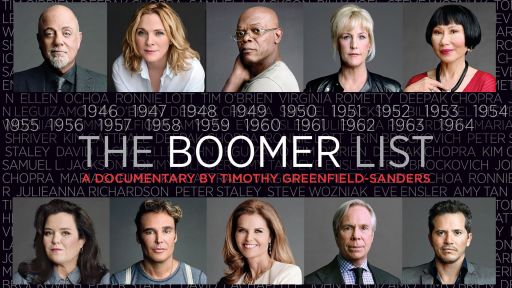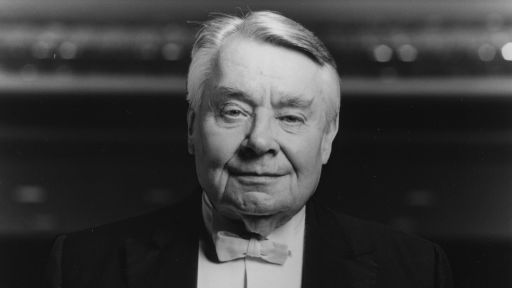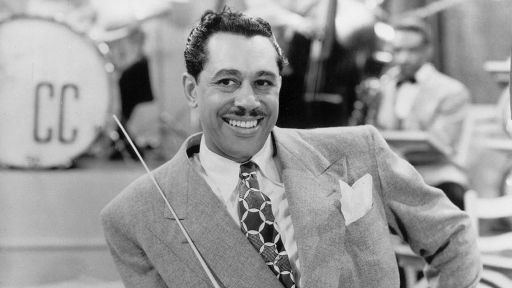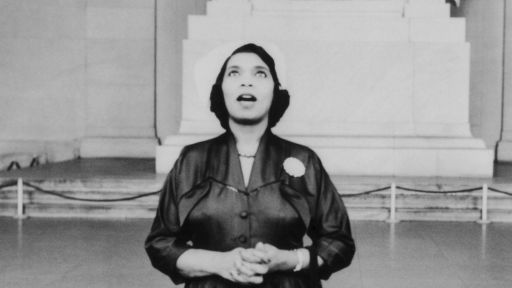Directors Andres Alegria and Abel Sanchez share their journey to creating A Song for Cesar, an ode to the farmworkers’ movement and Cesar Chavez.
In 2006, a friend asked me to meet Abel Sanchez, a well-known San Francisco musician, to talk about creating a music video for a new recording called “Song for Cesar.” The video led to a DVD release distributed by the Cesar Chavez Foundation and a decision to dig deeper into the stories of the musicians and artists who supported the farmworkers’ movement during the 1960s and 70s. Abel and I launched into a 15 year labor of love, interviewing dozens of artists and activists who told us their stories about playing music, painting murals, doing skits on top of flatbed trucks in the fields of Central California, all in support of the struggle of the farmworkers for fair wages and working conditions.
I was producing radio shows in the 1970s and had covered Cesar Chavez and the farmworkers’ movement, among other issues. I had also produced music shows and I knew that people have always used music and art to illuminate various aspects of their lives, including social realities such as poverty and violence. The arts have inspired social movements and, in turn, artists have taken inspiration from the struggles that people engage in.
The farmworkers’ movement of the 60s and 70s sparked a huge cultural blossoming. Abel and I had been witnesses to this history and as cultural workers, once the inspiration hit us, we had to make this film. As people today – especially young people – join movements to make our lives safer and more fulfilling and our world a fairer and better place, they can benefit from the fundamental lesson of this film, “Beware of a movement that sings.”
—Andres Alegria, Film Editor • Producer • Community Activist
After writing and recording “Song for Cesar” with Jorge Santana, and after joining forces with Andres Alegria, I was inspired, encouraged and moved to further explore the legacy of Cesar Chavez and the farmworkers’ movement. The inspiration resulted in a commitment that began a 15-year journey of making this film. The dream was that in some way this film would serve to educate, inspire and motivate current and future generations to think about social justice and what they might be able to do in their own lives. Diversity, inclusion and social justice have always been a part of my previous work as a diversity development and affirmative action professional. Taking on the making of this film was an easy fit because of my own experience and growing up as a Mexican American in the United States.
I related to the plight and struggles that farmworkers faced and, in many ways, still do.
I knew how important Cesar was to the farmworkers and their families and, as Andres and I filmed interviews with more and more artists, I was deeply moved by the courage and sacrifice this legacy contained. As the film progressed, being a songwriter and musician myself, I started to see and hope we were beginning to create a film that would inspire young songwriters and artists to think about what they might be able to do with their art, perhaps contributing to society much like the artists featured in this film so eloquently and beautifully did. In my own case, just as Chuy Varela so eloquently quoted, “You can learn the truth from a song.” Personally, I learned many truths in the making of A Song for Cesar.
—Abel Sanchez, Filmmaker • Musician • Songwriter • Activist

